News

The University of Kentucky is tackling many of Kentucky’s toughest health issues through research aimed at making documented, measured progress.
Among the many ongoing examples of UK’s faculty researchers focusing their skills to combat a major health challenge is Jennifer Havens, professor of behavioral science in the UK College of Medicine and a faculty member in the Center on Drug and Alcohol Research.

The University of Kentucky College of Law will host a panel comprising experienced professionals including prosecutors, advocates, social workers, trauma therapists, journalists and psychologists to discuss the themes and events covered in “Unbelievable,” a Netflix series about sexual assault. The discussion will take place noon Monday, Nov. 11, in the G. Chad Perry III Grand Courtroom located inside the College of Law and is free and open to the public.

The 2019 MediStar Awards honored University of Kentucky College of Medicine Dean Robert S. DiPaola, MD, and Jamie L. Studts, Ph.D., professor in the UK College of Medicine Department of Behavioral Science. Since 2007, IGE Media, publisher of Medical News, has recognized excellence in the business of healthcare at the exclusive MediStar Awards, which honors healthcare professionals for their achievements in advocacy, innovation, education, leadership and aging care.

The University of Kentucky recently received an $8.8 million grant from the National Institute on Drug Abuse (NIDA), part of the National Institutes of Health, to establish a Clinical Research Center as part of the Justice Community Opioid Innovation Network (JCOIN) to support research on quality addiction treatment for opioid use disorder (OUD) in criminal justice settings nationwide.
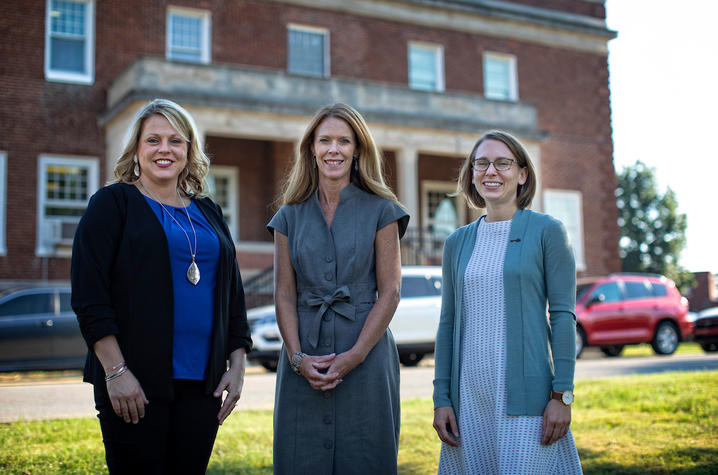
The University of Kentucky recently received an $8.8 million grant from the National Institute on Drug Abuse (NIDA), part of the National Institutes of Health, to establish a Clinical Research Center as part of the Justice Community Opioid Innovation Network (JCOIN) to support research on quality addiction treatment for opioid use disorder (OUD) in criminal justice settings nationwide.

The GO2 Foundation for Lung Cancer (formerly known as Lung Cancer Alliance and the Bonnie J. Addario Lung Cancer Foundation) is conducting a statewide education campaign in partnership with the University of Kentucky to bring lung cancer screening awareness to the thousands of Kentuckians at risk for the disease.
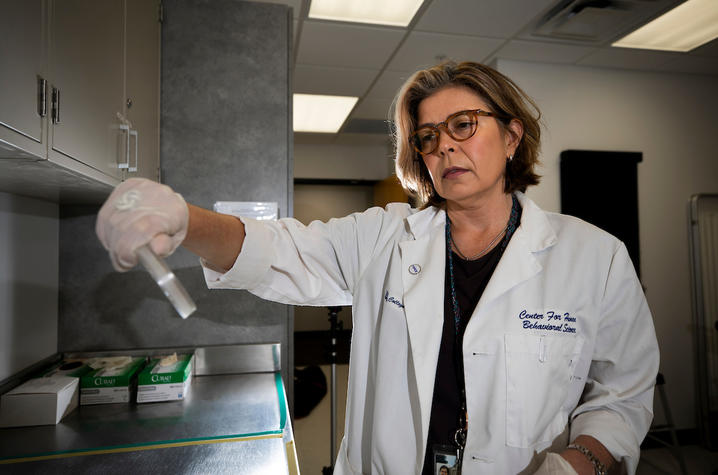
After being revived with Naloxone in the emergency room, patients immediately enter withdrawal. Cold chills, vomiting, diarrhea – “dope sickness” is what many call it. The feeling is hard to describe, but many people who’ve experienced it or witnessed it say it’s like the worst flu times 10.

In the largest grant ever awarded to the University of Kentucky, researchers from UK's Center on Drug and Alcohol Research (CDAR) and across campus — in partnership with the Kentucky Cabinet for Health and Family Services and the Justice and Public Sa
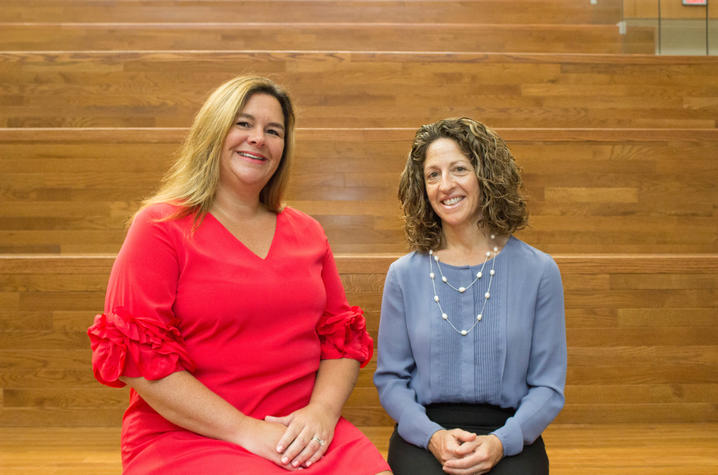
At the University for Kentucky, understanding and addressing the health needs of the people of the Commonwealth is the goal of many faculty, staff, clinicians and researchers. As a step toward improving health equity, the University of Kentucky Center for Health Equity Transformation (CHET) was established and recently approved by the UK Board of Trustees.

Department Chair
The College of Medicine seeks a dynamic academic and research driven innovative leader to serve as its next Chair for the Department of Behavioral Science and invites applications for the position.
This is a unique opportunity to build upon a strong and diverse foundation to substantially impact the behavioral health challenges facing the Commonwealth of Kentucky and beyond. Therefore, we desire a visionary Chair with an understanding of the future of behavioral science for the Commonwealth and demonstrated leadership abilities.
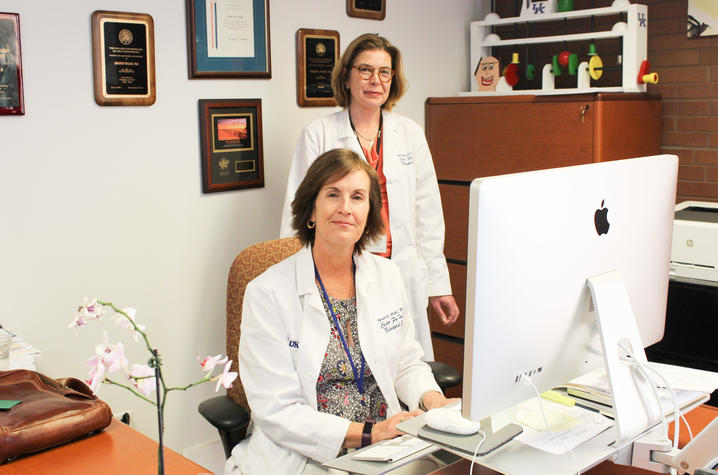
Better delivery of medications to treat opioid use disorder (OUD) is key to addressing the opioid crisis and helping the 2.6 million Americans affected by the disease.
While FDA-approved medications are effective for treating persons with OUD, including buprenorphine, methadone and naltrexone, each has its own unique barriers that impact patient access to care.

This week, it was my distinct pleasure to present the University Research Professorship Awards to 14 members of our faculty who have demonstrated excellence in research and creative work that addresses scientific, social, cultural, economic and health challenges in our region and around the world.
At a reception hosted by President Eli Capilouto at Maxwell Place, with their families, deans, associate deans for research and nominators on hand to celebrate with them, we had the opportunity to recognize and publicize the accomplishments of these scholars.

One undergraduate psychology course changed William Stoops' life.
Originally Stoops planned to major in French, but after taking more psychology classes and getting involved in intensive, hands-on research, he decided in his senior year to devote his professional life to the study of the behavioral effects of drugs.

Does reducing the use of cocaine, but not abstaining from the substance entirely, produce health benefits? There's currently little research available that answers that question.

University of Kentucky's Building Interdisciplinary Research Careers in Women's Health (BIRCWH) program has not only supported faculty and researchers in their work, but also jump-started careers, aided in the publication of research and helped forge partnerships and mentorships across disciplines.


The Third Annual Appalachian Research Day was held May 24 in Hazard, Ky., hosted by the University of Kentucky Center of Excellence in Rural Health (CERH). The event invites researchers and community members to “come sit on the porch” and share research findings with the local communities involved in the studies.
Rural Appalachian communities experience some of the most severe health disparities in the nation, and community-based research is an effective method to identify problems and develop collaborative, effective solutions.

To prove guilt beyond reasonable doubt, jurors must find evidence a defendant was culpable of a criminal act. Culpability refers to a person’s awareness and mental state, and in cases of criminal conviction, the degree of culpability or “guiltiness” dictates the degree of punishment. Depending on culpability, a punishment ranges from a small fine to life in prison.

Michele Staton-Tindall grew up in rural Appalachia during a time when people felt so safe they didn’t even lock their doors at night. The ensuing drug epidemic that now ravages her former home has dramatically impacted the lives of the Appalachian people and broken that sense of security.
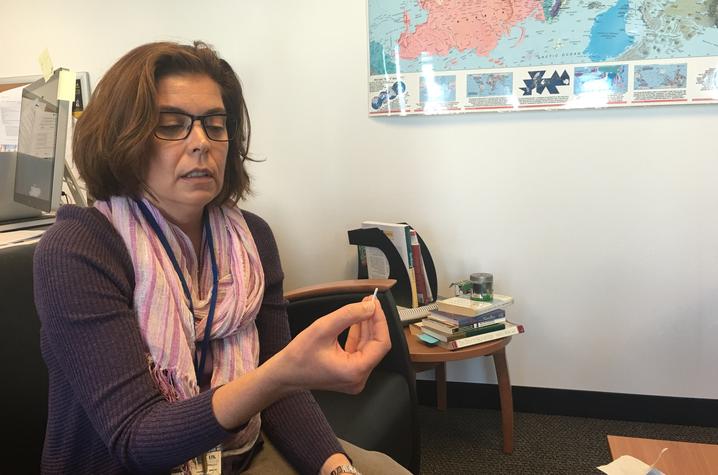
A multi-site clinical trial led by researchers at the University of Kentucky Center on Drug and Alcohol Research (CDAR) has demonstrated the effectiveness of CAM2038, a potentially transformative buprenorphine therapy for moderate-to-severe opioid use disorders.